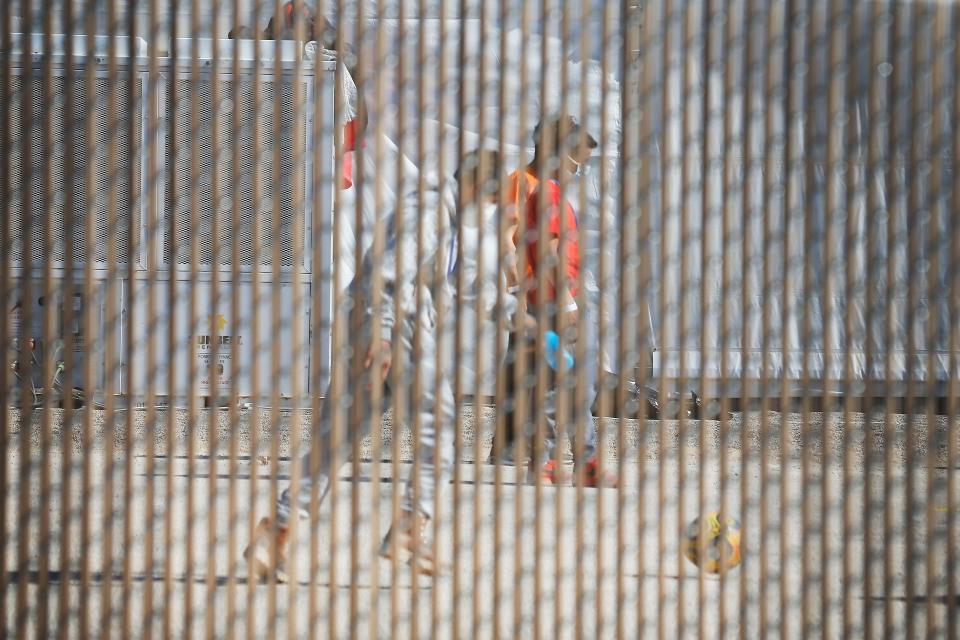Our immigration courts treat kids who come alone the same as adults. That's an injustice.
In 1961, my parents made the difficult decision to leave Cuba but could not obtain permission from the Communist government for my entire family to depart. Instead, my brother and I were sent ahead under a clandestine arrangement between the Catholic Church and the State Department to come to the United States. We were eventually assigned to live with a foster family in Los Angeles. I was ten years old, and while my family eventually reunited (many families were not as fortunate), the time without my parents left its mark on me forever.
My concerns for the safety and well-being of immigrant children coming alone to the United States seeking safety led me to join the Kids in Need of Defense (KIND) Leadership Council. I recently visited the Houston immigration court along with other Leadership Council members to understand firsthand what it means to be a child in today's immigration system. The experience immediately transported me back to the fear, confusion and longing of my ten-year-old self. I quickly realized that the process, so many years later, remains difficult, but is made worse by laws and procedures that don't take children's unique needs into account.

The courtroom was filled with families whose children slept or played or fussed throughout the long and tedious examinations. The judge we observed was friendly to the children, but kindness alone cannot compensate for the lack of a child-friendly system. The non-English-speaking children had difficulty understanding the judge's questions. Those who were with their parents kept looking to them for reassurance that they weren't saying the wrong thing. Even as an adult watching the proceedings, I felt overwhelmed and grappled to understand what was happening and the implications for these children's futures.
Creating a court system reflective of children's unique situations and vulnerabilities is long overdue. This is not about giving people shortcuts. Rather, it's about giving every child a fair chance to make their claim for U.S. protection in court. After that, it is up to the judge to make the ultimate determination of their eligibility to stay or to return to their home country.
Children's safety should not be a divisive political issue. A bipartisan bill in Congress recognizes this and addresses the injustice in our immigration court system for children. The Immigration Court Efficiency and Children's Court Act would establish a Children's Court focused on streamlining migrant children's immigration proceedings, creating a more child-friendly environment in which unaccompanied children are more likely to receive due process, while also creating a more efficient process.
The bill would ensure judges are specially trained to work with children going through the immigration system, establish procedures that allow kids to fully understand and participate in their proceedings, and require courts to coordinate with pro bono organizations that offer legal representation to unaccompanied children. Not only would this be incredibly beneficial to thousands of children, it would also ease the burden on the existing immigration court system, which is currently experiencing a backlog of over three million cases.
Immigration policy and politics are complicated and difficult. However, recognizing our shared value of protecting children is simple.
Coming to the United States and eventually attending Texas A&M gave me one of the greatest gifts I could ever ask for: opportunity. I was lucky enough to have a chance to take part in the American dream. All children who come to this country deserve that same chance – and we can help to make that happen by remaking the system that decides their fate.
Jorge Bermudez is president and CEO of the Byebrook Group, the former Chief Risk Officer of Citigroup/Citibank. He migrated to the United States without his parents as a 10-year-old from Cuba, and lives in Austin.
This article originally appeared on Austin American-Statesman: We need fair immigration courts system for kids who come here alone

